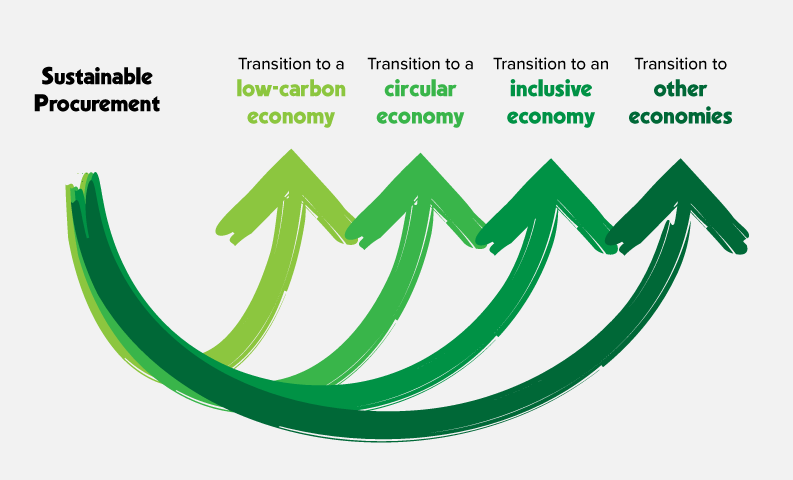Dr Paul Hedayati
Dilemmas in Sustainable Procurement

What does sustainable procurement look like? What dilemmas may arise when organisations integrate sustainability into their purchasing decisions? How can organisations effectively address such dilemmas?
Let’s start with the first question. Sustainable procurement is a multi-faceted concept encompassing environmental, social, ethical, financial, and other dimensions. To visualise it, think about a diamond with multi facets. As the beauty of a diamond largely depends on the geometrical balance of its facets, the beauty and value of sustainable procurement depend on the delicate balance between its different dimensions.
But what role does sustainable procurement play for organisations?
Having reflected on sustainable procurement for a long time, I consider sustainable procurement as a bridge between the current economy and the emerging ones. Examples of emerging economies are a low-carbon economy, a circular economy, an inclusive economy (an economy that generates opportunities for all).
Now, let’s move on to the second question and discuss the dilemmas that may arise when organisations adopt sustainable procurement practices. One significant dilemma in sustainable procurement revolves around procurement decisions that can benefit one emerging economy but potentially work against another. To illustrate this, consider the following example: Imagine you run a logistic company with a fleet of trucks and you want to integrate sustainability into your purchasing decision when buying tyres. A supplier suggests purchasing their fuel-efficient tyres, which can reduce your company’s carbon emissions and support the transition to a low-carbon economy.
However, there is a trade-off with fuel-efficient tyres: They tend to be less durable. The fuel efficiency is primarily achieved through lowering the rolling resistant of tyres by using less trade on them. Using less durable tyres in your company’s fleet can result in an increase in generation of waste tyres, posing a challenge to your company moving towards a circular economy.
Another dilemma in sustainable procurement revolves around supplier selection. It involves the challenge of balancing social, environmental, and economic considerations. To illustrate this, consider the scenario where you need to purchase solar panels for your company. You are faced with two options: Purchasing low-priced panels from a supplier with a compromised record of labour rights or acquiring them at a higher cost from a supplier that strictly complies with labour rights legislation. Which option would you prefer? Would you prefer the economic benefits of the first option over the potential social advantages of the second option? Or would you do the opposite?
The key distinction between the first dilemma and the second one lies in their focus: the former pertains to products and services that organisations purchase, whereas the latter concerns the suppliers of the products and services.
Now, let’s proceed to the final question: How can organisations effectively address the discussed procurement dilemmas?
In my perspective, as a general approach, adopting consequential thinking can provide an effective solution. To tackle the first dilemma, organisations can ask themselves, “What would be the consequence of purchasing this product or service on our transition to a low-carbon economy, our transition to a circular economy, and beyond?”. This comprehensive consideration allows for a holistic evaluation of the impacts.
Regarding the second dilemma, organisations can inquire, “What would be the consequence of working with this supplier in terms of social and environmental sustainability?”. By incorporating these questions, consequential thinking becomes a catalyst for exploration and understanding in sustainable procurement. It sparks curiosity, fosters critical thinking, and stimulates active engagement within and between organisations in the sustainable procurement space.
In conclusion, sustainable procurement is a function of the sustainability goals that an organisation is trying to achieve. Prior to the establishment of any sustainable procurement policies and guidelines, organisations should explore and define the economic transitions that they will go through.

Dr Paul Hedayati
Principal Sustainability Consultant
Dr Paul Hedayati has dedicated more than two decades of his career to consulting, researching, training, and coaching in the sustainability space. As an Environmental, Social, and Governance (ESG) specialist, he has worked in different business setting including government, engineering consulting, tertiary education, and not-for-profit.
Paul has supported a long list of public and private organisations to be:
- more resource efficient,
- more climate resilient,
- more ready for a circular economy, and
- more committed to the principles of ethical procurement.
Partner with us on your next project
Contact our specialised team for more information about our services.